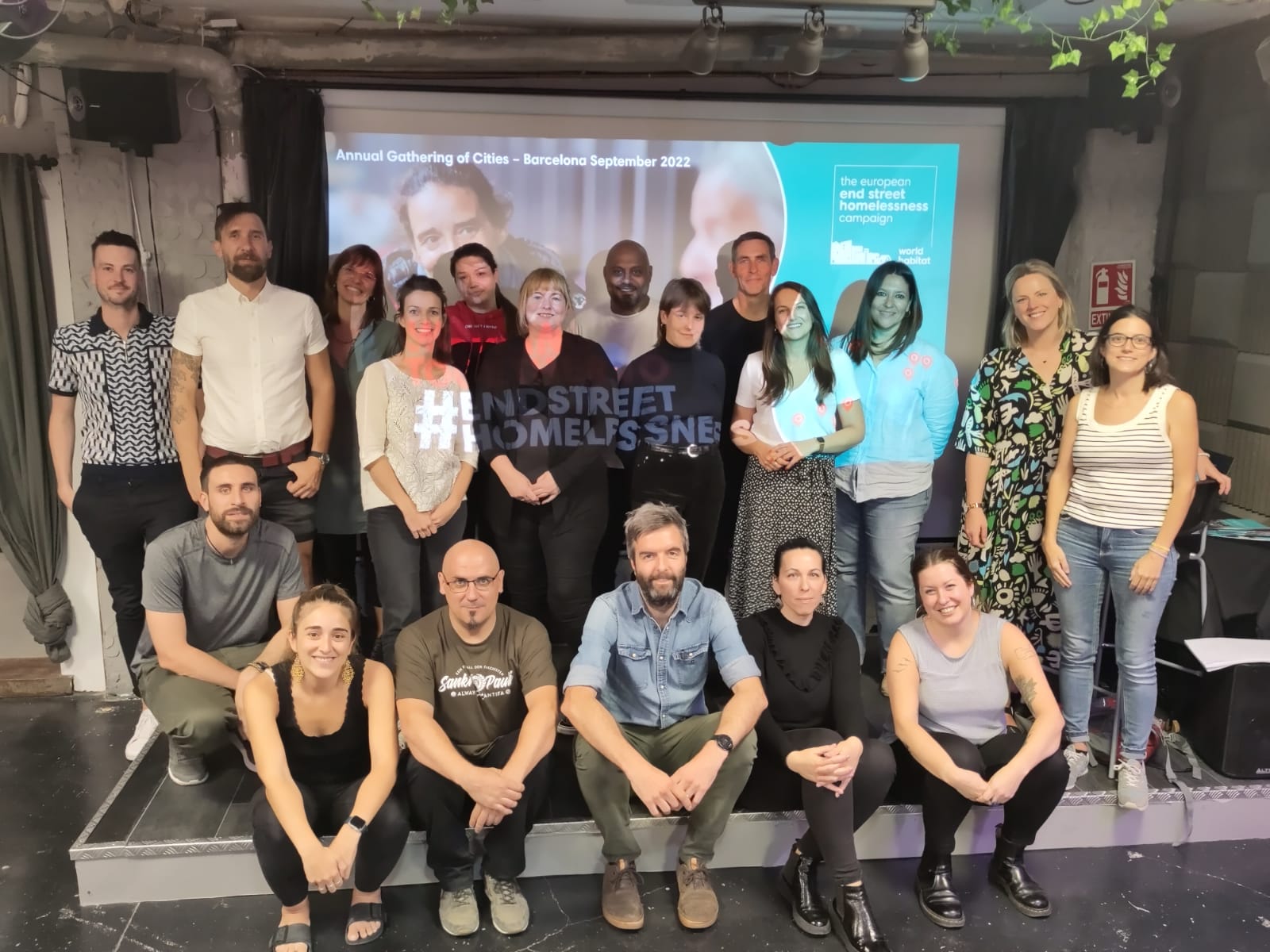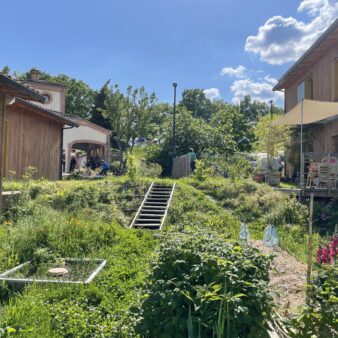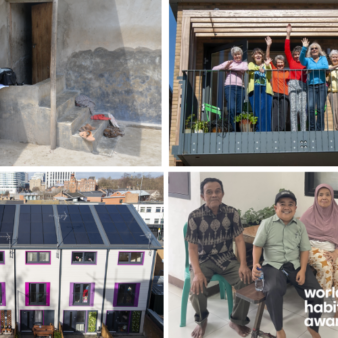
In this blog we hear from Dr Rosie Reynolds (Centre of Homelessness Impact) about their new partnership with World Habitat and her recent visit to our Annual Gathering of Cities.
The Centre for Homelessness Impact (CHI) has been excited to begin a new partnership this year, working with World Habitat. World Habitat is an independent charity working internationally to help bring the best housing to the people who need it the most. Their World Habitat Awards recognise and highlight innovative, outstanding and sometimes revolutionary housing ideas, projects and programmes from across the world. They are the hosts of the European End Street Homelessness Campaign, a network of organisations working across Europe to end street homelessness.
We have been working together to look at ways in which their unique position could help to fill data and evidence gaps in homelessness, and to help embed some of the learning CHI has from developing a shared definition of ending homelessness. Rosie Reynolds, Practice and Partnerships Lead at the Centre, attended the Annual Gathering of Cities in Barcelona in September.
Representatives came from homelessness organisations in Barcelona, Bratislava, Brussels, Bucharest, Budapest, Glasgow, Leicester, Lisbon, Westminster, and Zagreb – all working towards the same broad goal of ending street homelessness but with varying levels of involvement with municipalities, and with different geographical and political contexts.
From the first evening, when delegates met for a meal at Mescladis (a restaurant offering training and development to individuals facing social exclusion for a variety of reasons), the value of bringing people together from different contexts was clear. Ideas were flying across the table on topics from case management software to cash transfer studies; from upstream prevention measures to podcasts.
Over the three days, hosted by Barcelona homelessness organisation Arrels Fundació, the group visited Barcelona Municipality; various services run by Arrels including a day centre, a managed alcohol programme, and an incredible workshop where people could learn new skills.
Key Themes
While everyone was working in a different context, there were some key commonalities that emerged.
Everyone deserves to be treated with respect and dignity
In his presentation about his work with Oz Stopo Slovensko in Bratislava, Pavol Sabela expressed a key principle of their services: they are adult to adult. The importance of giving people choices and respecting that people are experts in their own lives and experiences came up time and again, from all the cities. People are at the centre of the work, and they are all individuals with their own stories.
People with lived experience of homelessness are a key part of the solution
Multiple conversations were had about how to make best use of the expertise of people with lived experience of homelessness, and how to ensure that this is done in a meaningful and thoughtful way. Delegates shared their experiences of setting up advisory panels, running focus groups, and creating paid employment opportunities within their services.
Housing alone is not enough
When we talk about ending street homelessness, we are talking about housing as a start, but not the solution. Partners talked about work they were doing in partnership with health, education, and justice organisations. They shared interventions targeted at alleviating loneliness (Marian Ursan from Carusel, in Bucharest, had found great impact from distributing battery-powered radios to people living on the streets); at reducing harm to drug users; at developing employment skills. Just like the problem, the solution is not simple.

A shared vision
On day 2 of the gathering Rosie led a session talking about the potential impact of defining a shared vision which goes beyond ‘ending homelessness’ (an admirable goal, but open to interpretation and potentially not realistic in totality). The CHI vision, which has also been adopted by others, is for:
A society in which homelessness is prevented whenever possible or rare, brief and non-recurring.
Going forward, CHI and World Habitat staff will be looking at what this kind of shared goal could mean for World Habitat, and whether it could be a useful tool for partner cities.
The Centre are excited to be learning from and contributing to the European End Street Homelessness Campaign – watch this space for more information of how we do it!




Join the discussion